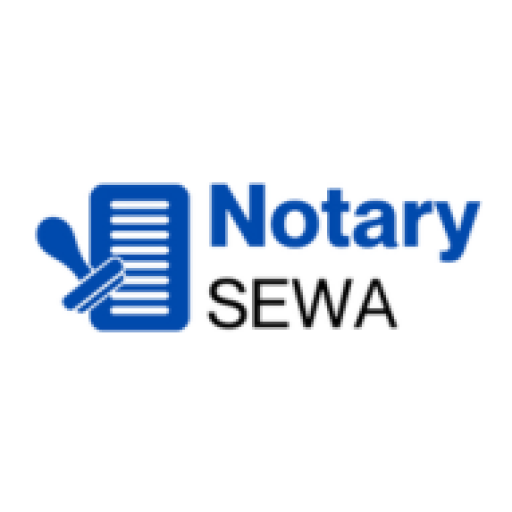
Are you looking to accelerate the wills and testament notarization process in Nepal while avoiding costly mistakes? This guide will show you exactly how to do so—helping you finalize your will or a loved one’s will efficiently under Nepalese law. By the end, you’ll understand the key requirements, common pitfalls, and best practices to ensure your notarized will remains legally robust and uncontested.
1. Introduction
Finalizing a will is crucial for outlining how your assets, property, and personal belongings are distributed after your passing. In Nepal, notarizing a will can often expedite legal proceedings and reduce disputes among heirs. However, the process can become time-consuming if you’re unfamiliar with Nepalese legal requirements or if you lack the correct documentation. This article simplifies everything from the legal framework to practical steps for speeding up the Wills and Testament Notarization process—so you can do it without errors and with complete confidence.
Quick Tip: If you’re pressed for time, head directly to Wills and Testament Notarization at Notary Sewa for professional help.
2. Understanding Wills and Testament Notarization in Nepal
A will (or testament) is a legal statement clarifying how a person’s estate—cash, property, investments, and personal effects—should be handled upon their demise. While notarization is not legally mandated for a will to be valid in Nepal, having a notarized will offers substantial benefits:
- Strengthened Legal Standing: A notarized will is more difficult to challenge, as it carries additional evidentiary weight in legal proceedings.
- Preventing Identity Disputes: It confirms the identities of both the testator (person making the will) and the witnesses.
- Streamlined Probate: Courts and other legal authorities often process notarized wills faster, minimizing delays.
For quick notary searches like “notary near me,” “notary service in Nepal,” or “notary public,” visit the Notary Sewa homepage.
3. Key Nepalese Laws and Regulations
Nepalese law outlines the core requirements for drafting and executing wills in the Muluki Civil Code 2074 (2018) and relevant legal acts governing the Notary Public. Key points include:
- Age and Mental Capacity:
- You must be at least 18 years old and mentally competent (of sound mind) to make a valid will.
- Free Will and Consent:
- The will must be created willingly, without any form of coercion, threat, or undue influence.
- Witness Requirements:
- You need at least two adult witnesses who are not beneficiaries of the will.
- Importance of Notarization:
- While the law does not enforce notarization for a will to be valid, a notarized will is given higher legal credence in the event of a dispute.
Reference: For more legal details, consult the Nepal Law Commission website.
4. Common Errors That Delay the Notarization Process
Avoid these pitfalls to prevent setbacks and unnecessary legal complications:
- Incomplete Documentation
- Missing ID proofs, property deeds, or essential estate documents can cause delays.
- Incorrect Witness Selection
- Using minors or beneficiaries as witnesses can invalidate the will in court.
- Language Barriers
- Non-Nepali documents must often be translated to Nepali. Inaccurate or uncertified translations can lead to rejections.
- Ambiguous Clauses
- Vague distribution of assets or conflicting instructions can spark legal challenges and slow down proceedings.
- Ignoring Nepalese Inheritance Laws
- Certain types of property, such as ancestral property, are subject to specific guidelines under the Muluki Civil Code.
Related Read: Can a Notarized Will Be Contested? Understanding Legal Challenges
5. 7 Steps to Speed Up Wills and Testament Notarization
1. Gather Essential Documents Early
- ID Proofs: Nepali citizenship certificates or passports.
- Property Deeds: Documents proving ownership of land or buildings.
- Financial Records: Bank statements, share certificates, or investment documents.
Pro Tip: Keep multiple copies to avoid last-minute photocopy or scanning delays.
2. Draft a Clear, Concise Will
- Use plain language to minimize misunderstandings.
- Specify each asset and its intended recipient.
- Include guardians for minor children if applicable.
If you need help with legally binding statements, see Affidavits and Sworn Statements.
3. Select the Right Witnesses
- Witnesses must be 18 years or older and cannot be beneficiaries.
- They should be able to comprehend the legal implications of the document.
- If in doubt, consider neutral parties—like neighbors or trusted friends.
Further Insight: The Role of Witnessing Signatures in Legalizing Sensitive Documents
4. Verify Language and Translation Needs
- If your will is written in English or another foreign language, a certified translation into Nepali may be necessary.
- Avoid translation errors by using professional services such as Translation of Official Documents.
5. Understand Nepalese Inheritance Laws
- Certain assets, notably joint family property, follow specific legal guidelines regarding inheritance.
- Consulting a local attorney or certified notary public can clarify these rules.
6. Schedule a Notary Appointment in Advance
- Contact an authorized notary (recognized under the Notary Public Act, 2063).
- Book early to avoid peak-season waiting times.
- For prompt service, explore Wills and Testament Notarization at Notary Sewa.
7. Complete the Signing and Seal Process
- The testator and both witnesses sign in the presence of the notary public.
- The notary applies an official seal, confirming the document’s authenticity.
- Store the final notarized copies securely—preferably in a safe deposit box or with a legal advisor.
6. Ensuring Accuracy and Compliance
Even a minor mistake can invite legal disputes or slow down asset distribution. Here’s how to maintain high standards of accuracy:
- Double-Check Personal Details
- Confirm that beneficiary names match their official IDs to avoid mismatch issues.
- Use Clear, Detailed Clauses
- Number or bullet important points to reduce ambiguity in asset allocation.
- Consult Experts
- If you own multiple properties or international assets, professional legal guidance can save you from potential oversights.
Recommended Read: How Documents Notarization Protects Against Document Fraud
7. How Professional Notarial Services Can Help
Professional notary offices in Nepal offer services that can expedite and safeguard your will’s notarization:
- Legal Compliance Checks: Ensuring every clause meets Nepali law standards.
- Document Translation & Certification: Handling multi-language requirements accurately.
- Trust Agreements and Complex Estates: Providing specialized guidance for large or intricate asset distributions.
For more specialized needs, explore:
8. Related Services and Additional Resources
Other Notary Services
- Documents Notarization: Ideal for academic records, marriage certificates, or sensitive legal documents.
- Powers of Attorney: Grant legal authority to another person for managing personal or business affairs.
- Certification of Legal Documents: Ensures your documents hold official recognition both in Nepal and overseas.
Additional Services for International Compliance
- **Apostille of Documents
- Legalization of Documents
- Ministry of Foreign Affairs (MoFA) Attestation Services**
For a full spectrum of services, check NotarySewa Services or the homepage.
10. Conclusion
Speeding up the wills and testament notarization process in Nepal revolves around thorough preparation and understanding the nation’s legal requirements. By gathering the necessary documents, drafting a clear will, selecting the right witnesses, and possibly engaging professional notarial services, you can finalize a legally sound, notarized will promptly—often in just one session.
If you need specialized assistance, visit the Wills and Testament Notarization page at Notary Sewa, or explore the homepage to find notary services near you. Ensuring your will is correctly notarized is an investment in peace of mind—one that guarantees your final wishes are honored without avoidable legal hurdles.
